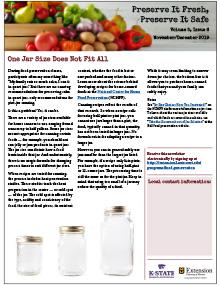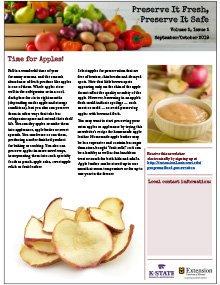

Missouri Farm to School Guide for School Food Nutrition Professionals
New
In Missouri, Farm to School (F2S) is a voluntary program with three core elements: (1) school procurement of

Getting Started with Farm to School Gardens
New
In Missouri, Farm to School (F2S) is a voluntary program with three core elements: (1) school procurement of
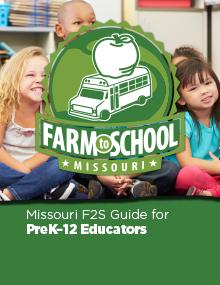
Missouri Farm to School Guide for PreK–12 Educators
New
In Missouri, Farm to School (F2S) is a voluntary program with three core elements: (1) school procurement of

“Alternative” Protein Sources — Extension Fact Sheet
New
Editor’s note
The following abstract describes a publication that is only available as a downloadable PDF.
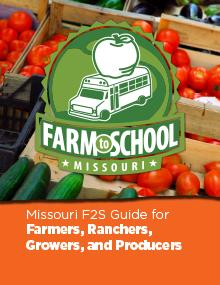
Missouri Farm to School Guide for Farmers, Ranchers, Growers, and Producers
New
In Missouri, Farm to School (F2S) is a voluntary program with three core elements: (1) school procurement of
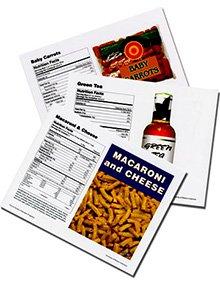
FNEP Food Label Cards
Revised $30
Editor's note
The following abstract describes a publication that is only available for purchase.
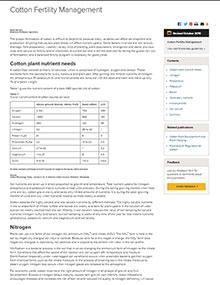
Cotton Fertility Management
Revised
Optimize cotton yields with balanced fertilization, timely nutrient applications, and soil testing to ensure healthy growth and efficient nutrient uptake.
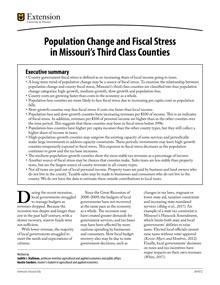
Population Change and Fiscal Stress in Missouri’s Third Class Counties
New
Discover the contributing factors to fiscal stress among Missouri’s counties including change in population, changing revenues and varying sales and property taxes. Total taxes, fees, revenues and corresponding fiscal stress levels are presented.

The Boll Weevil in Missouri: History, Biology and Management
Revised
Details the boll weevil's impact on Missouri cotton, its life cycle, and eradication efforts that concluded in 2008.
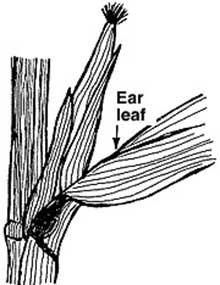
Sampling Plant Tissue and Soil for Analysis
Revised
This publication provides guidance on proper techniques for sampling plant tissue and soil to ensure accurate nutrient analysis.
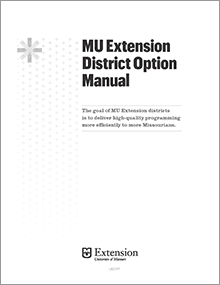
MU Extension District Option Manual
Revised
University of Missouri Extension county councils have the option, by law, to form districts to solidify and grow their programs. Learn why forming a district might be a good idea, the process of doing so, and how a district operates in this manual.
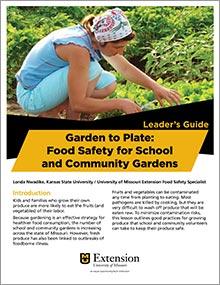
Garden to Plate: Food Safety for School and Community Gardens — Leader’s Guide
New
Editor’s note
The following abstract describes a publication that is only available as a downloadable PDF.

Using Breast Milk Safely — Extension Consumer Food Safety Fact Sheet
New
Editor’s note
The following abstract describes a publication that is only available as a downloadable PDF.
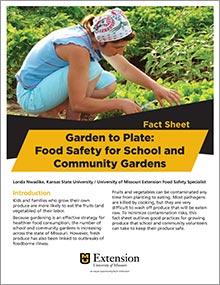
Garden to Plate: Food Safety for School and Community Gardens — Fact Sheet
New
Editor’s note
The following abstract describes a publication that is only available as a downloadable PDF.
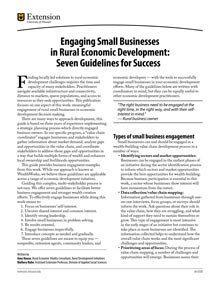
Engaging Small Businesses in Rural Economic Development: Seven Guidelines for Success
New
Follow these guidelines for facilitating an improved business engagement while fostering leadership and problem solving to find meaningful engagement in rural small businesses. Business examples and seven key guidelines are presented here.
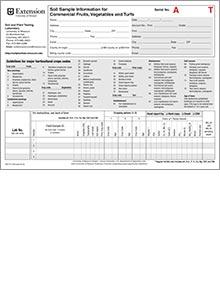
Soil Sample Information for Commercial Fruits, Vegetables and Turfs
Revised
Commercial fruit, vegetable and turf growers in Missouri can have their soil analyzed by the MU Extension Soil and Plant Testing Laboratory. Complete and submit this form along with your samples.
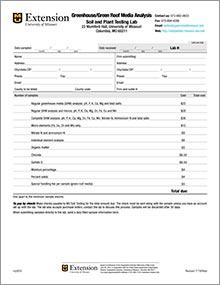
Greenhouse/Green Roof Media Analysis Information Form
Revised
Testing greenhouse media provides an assessment of the material to adequately provide plant nutrients and provide a good rooting environment. Complete and submit this form along with your samples.
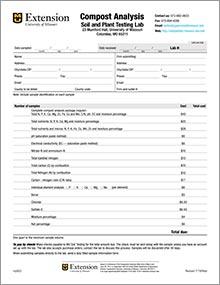
Compost Analysis Information Form
Revised
It is preferable to know the nutrient content of your compost material. Based on the compost analysis you can decrease the amount of fertilizer needed. Complete and submit this form along with your compost samples for analysis.
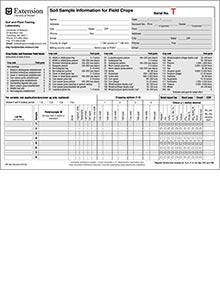
Soil Sample Information for Field Crops
Revised
To have your soil analyzed, complete and submit this form along with your field crop samples.
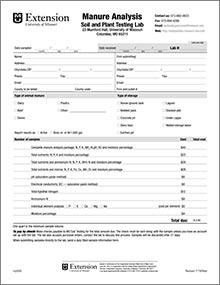
Manure Analysis Information Form
Revised
Manure testing is necessary to make optimum use of manure, which is a valuable source of nutrients for crops and improves soil productivity, while protecting water resources. Complete and submit this form along with your manure samples.
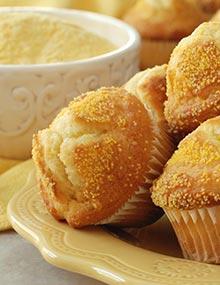
Using and Storing Cornmeal
Revised
Cornmeal is a staple in many kitchens because it has a variety of uses. Visit our website today to learn about Using and Storing Cornmeal.
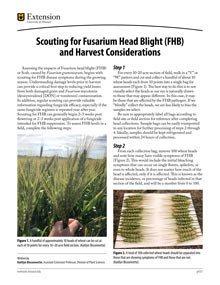
Scouting for Fusarium Head Blight (FHB) and Harvest Considerations
New
Learn how to scout for Fusarium head blight in wheat fields and assess harvest risks related to grain quality and mycotoxin contamination.

Frequently Asked Vegetable Questions
Reviewed
Are you wondering why your carrot seeds won’t germinate or when to harvest your zucchini? Find answers to these and many more vegetable questions in this guide.
